Chief Minister Arvind Kejriwal said Wednesday that the Army should be deployed in Delhi and curfew imposed in the areas affected by communal riots, three days after violence broke out. He blamed the Delhi Police for being unable to “control the situation and instill confidence”. Kejriwal, who met Home Minister Amit Shah Tuesday, has been criticised for not doing enough to quell the riots.
ThePrint asks: Delhi riots: Is CM Arvind Kejriwal actually powerless or using it as an excuse?
There is multiplicity of authority in Delhi, but CM has many ways to make Delhi Police accountable
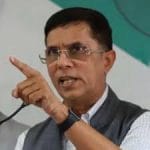 Pawan Khera
Pawan Khera
National Spokesperson, Indian National Congress
Ever since Delhi elected its first legislative assembly in 1993, elected governments have tried to expand their powers by bringing more and more departments under their purview. Delhi’s chief ministers have always had at their command several levers to control the Delhi Police.
The Annual Confidential Report of Delhi’s Commissioner and Special Commissioners of Police is written by the chief secretary of Delhi.
The other tool used by the state government is that of a magisterial enquiry to probe into the role of the police in a riot or any such situation where questions are raised on either the capability or the complicity of Delhi Police.
The Delhi Assembly has empowered itself through the Rules of Procedure and Conduct of Business in the Delhi Vidhan Sabha to hold the Delhi Development Authority and the Delhi Police accountable to the people through the elected government. Arvind Kejriwal, with his lack of administrative experience, did everything to surrender this critical power of the Delhi Assembly. His futile conflicts with the lieutenant-governor culminated into the withdrawal of ‘reserved subjects’ from the purview of the Delhi Assembly. People of Delhi lost the power of their vote in making these institutions accountable to the government elected by them.
There is multiplicity of authority in Delhi and every chief minister knows this. The choice is between navigating your way to provide good governance in Delhi or using it as a fig leaf to cover your incompetence. Arvind Kejriwal invariably chooses the latter.
My question to Kejriwal: Did you talk to Police Commissioner before claiming police didn’t have orders from above?
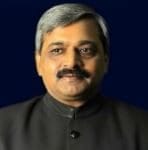 Satish Upadhyay
Satish Upadhyay
Former president, BJP Delhi unit
The question of Arvind Kejriwal being powerless or powerful does not arise here. It is about whether the Delhi CM is behaving appropriately and taking responsibility in such a grim situation. Kejriwal can always say that he is not powerful or that the situation is not in his hands, but he is an elected representative of Delhi at the end of the day. As a responsible CM, he could have called all the political party representatives and convened a meeting with all the communities concerned and initiate positive action. His own party’s MLAs were already involved in the Shaheen Bagh sit-in. Deputy CM Manish Sisodia had said that he stands with the Shaheen Bagh protesters. Now Arvind Kejriwal saying that his meeting with Home Minister Amit Shah went well is nothing but hypocritical.
My question to Kejriwal is: Did you talk to the Police Commissioner before saying that the Delhi Police did not have orders from above? I would urge him to not give any generalised statements at this hour. He should first talk to Delhi Police officers before making unnecessary remarks.
If he doesn’t have the power to give orders, then he should at least initiate some positive measures to deal with the situation by talking to the communities concerned and dharma gurus. Right now, everyone should avoid doing politics and stop accusing each other. People must instead unite on this issue and educate each other on how to restore peace and stability.
AAP is following protocol. After Delhi Police’s failure, we requested MHA to bring in Army
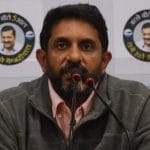
Prithvi Reddy
National spokesperson, AAP
It’s abundantly clear that the Delhi government has absolutely no control over the Delhi Police. Forget about having no power, we ourselves have been the victims of atrocities by the Delhi Police throughout our five-year term. Delhi Police was used and misused against the Aam Aadmi Party.
In any given situation, you wait for the police to take action. Over the past couple of days, since the violence has started, the police has given very confusing statements, including that it didn’t have sufficient forces, which makes it clear that the police have completely failed to control the situation. This has left bad blood among both sides involved in the violence. The common man has lost confidence in the ability of the Delhi Police to ensure peace and order. Considering this, it seems that the police is acting under pressure and the only option left is to bring in the Army, the only force believed to be above any kind of political influence. That is why we have appealed to the Home Minister to call in the Army.
On the question of why it was delayed, I would say that we have to trust the police first to deal with such situations. It is only when the situation gets out of control that the Army is called in. It is only on account of the Delhi Police’s failure that we are now calling the Army. This is the normal protocol, and we are following the protocol.
Kejriwal can’t give orders to Delhi Police but can surely insist on visiting riot-hit areas
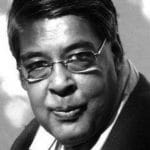 Purushottam Agrawal
Purushottam Agrawal
Professor and author
It is true that Delhi Chief Minister Arvind Kejriwal can’t do much, but politics is not merely about formalities. He surely can’t give orders to Delhi Police or ask paramilitary forces to take charge, but he can at least ask his party’s MLAs to organise joint peace actions in affected areas. After all, they represent the people of Delhi. Kejriwal can at least move a resolution in the assembly asking for immediate action and, most importantly, can also insist on visiting riot-hit localities to comfort people. It might anger Home Minister Amit Shah and Kejriwal’s government may face trouble. And that is the political concern that is holding the AAP back. It will be more honest if it confesses the reason behind its inaction.
To put it quite bluntly, the behaviour of Arvind Kejriwal is symptomatic of the politics of ‘development’ minus the idea of democratic citizenship. Such politics can do well on the welfare front to some extent, as the AAP government has really done, but on the crucial concern of democratising the social structure, it will always be found wanting because it is a question of political ideas, not merely of ‘development’.
There is hardly anything to be surprised at this outcome of politics hating politics so adored by our middle class.
Also read: Who is to blame for CAA violence: Delhi Police or politics of Modi government?
By Unnati Sharma, journalist at ThePrint



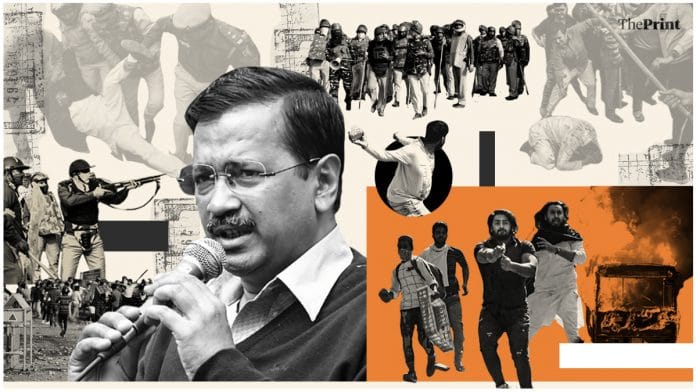



True. He has learnt his lessons but in in the process of his new political prudence as to how to deal with a rabid BJP, people of NEDelhi have suffered and most probably scarred for the rest of their lives.
If Kejriwal is keeping a low profile, that is only because his party is involved in the rioting. Video evidence is coming out against his MLA’s direct involvement in leading rioters and supplying weapons.
A CM who is not welcome to attend a simple school visit with the First Lady can hardly impose himself on the most highly politicised police force in the country. Let us take the hard edged, cynical view of what he is doing. There has been a monumental failure / embarrassment / snafu right in the middle of the US President’s visit. The world’s gaze on India. No one is showering rose petals. Why should he get in the line of fire, or pick someone else’s chestnuts out of the tandoor. To be fair to the CM, the sins of omission and commission of DP have been piling up in the last couple of months. Jamia, JNU, the landscape is littered with detritus. He would be crazy to touch it with a barge pole.